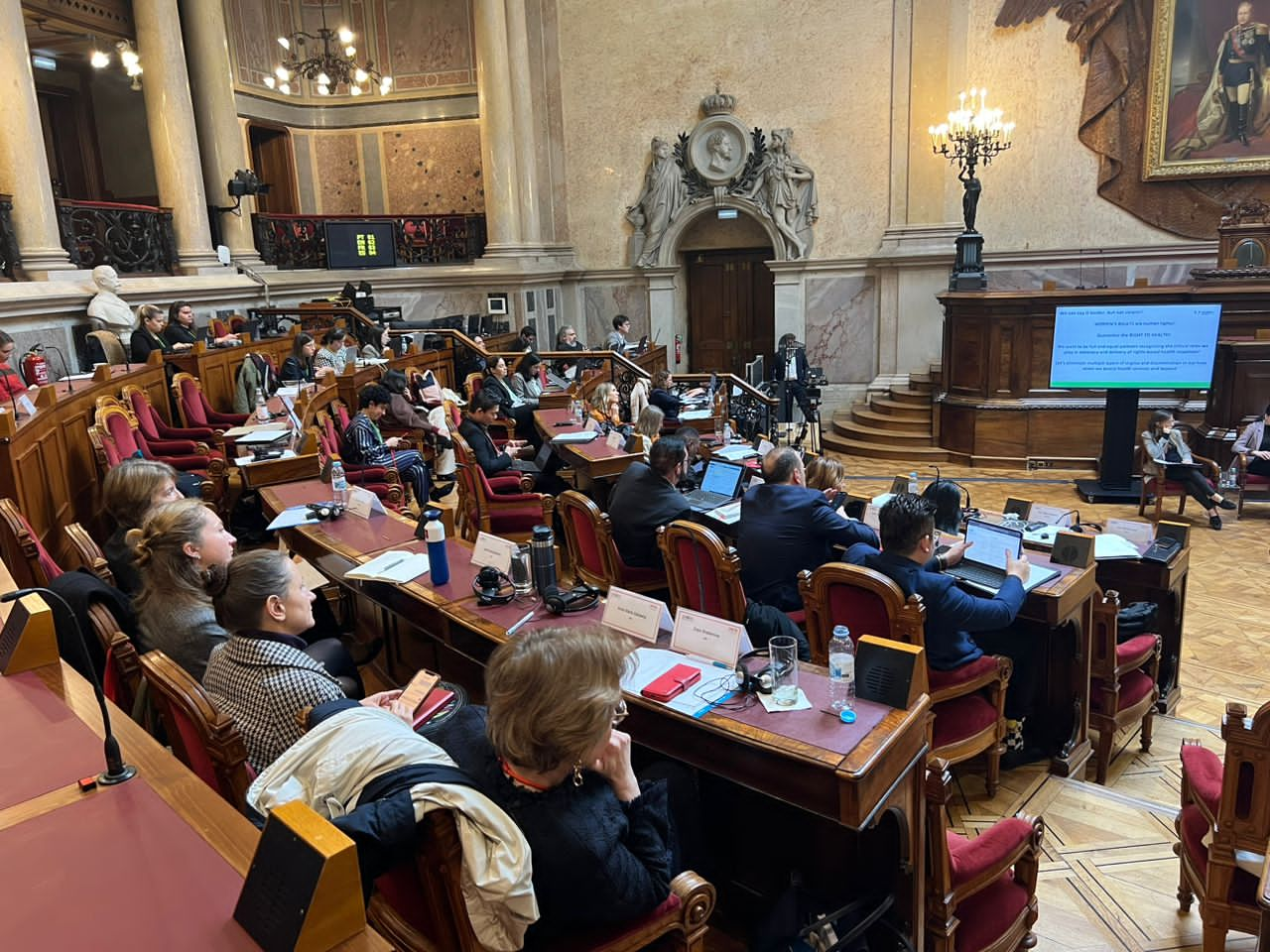The Member representing Bende Federal Constituency and Spokesperson of the House of Representatives, Rep. Benjamin Kalu joined other parliamentarians and leaders of Health Communities across the globe at the Unite Global Summit holding from the 5th to 7th of December 2022 at the Portuguese Parliament, Lisbon, Portugal.

The Summit organized by the UNITe Parliamentarians Network for Global Health which is one of the world’s leading Forum for forging partnerships between parliamentarians and leaders from the global health community is held with the goal of fostering new partnerships, new ways of thinking, and new funding needed to get back on track and achieve the promise of the SDGs especially as it concerns global health. Over the three days of the summit, experts from civil society organizations, affected communities, international organizations and academia will come together with leading parliamentarians from across the world, to discuss the most pressing issues in Global Health and set the agenda for the year to come.
Rep. Kalu who has shown great passion and commitment towards global health through his legislative activities in Nigeria is a member of the organization and a speaker at the summit.
The Representative further explained the steps Nigeria has taken to ensure that the country and also Africa as a continent continent will not be taken unawares in the outbreak of any pandemic in the future, adding that with the new Vaccine policy in Nigeria which will ensure vaccine availability, self sufficiency and overall security through local production and ownership of supply chains, the country is better equipped for any future occurrences. He highlighted five key commitments that should be embraced by global health community as follows;
• The promotion and alignment of international, regional and national scientific and technical cooperation and action in research and development. Expanding investments to achieve the scientific and technological readiness for rapid reaction to an identified outbreak, to strengthen defences against future known and unknown threats, is critical to pandemic PPR. We welcome measures to strengthen research and development processes and capacities for rapid and timely development and production of medical countermeasures, and measures to increase investment of human and financial resources in R&D of MCMs.
• Commitments to ensure timely access to affordable, safe, efficacious and effective medical countermeasures, especially to developing countries according to public health risk and need, and to promote rapid, regular, rapid and timely sharing of pathogens, genetic sequence data, need to be facilitated by a multilateral specialized system for access and benefit-sharing and need to be supported by measures to build national capacity to receive, distribute, and administer medical countermeasures.
• The focus on equity as a principle and consideration of sustainability to be a key element in the implementing a PPR framework underpinned by equitable access. The volatile nature of outbreaks means that pandemic preparedness requires a global systemic approach that incorporates sustainability as a core principle during non-emergency periods in order to ensure equitable access to medical countermeasures when the need arises. This includes measures to support sustainable regional and geographic diversification of manufacturing capacity to ensure global supply resilience, sustainable end-to-end financing for R&D, manufacturing, procurement and delivery of medical countermeasures, and measures to increase supply chain transparency and to reduce the use of export restrictions to promote equitable access.
• Commitments to strengthen national and regional regulatory authorities’ capacities, to prepare for and accelerate emergency licensing and approval procedures, where appropriate, to allow for the timely availability of medical countermeasures. This includes harmonisation, collaboration and reliance across regulatory authorities.
• Commitments to ensure sustainable and predictable financing pandemic prevention, preparedness, response and to facilitate rapid and effective mobilization of financial resources. This should be supported by a whole-of-government approach, reflecting the whole-of-society impact of pandemics. While pandemic PPR is a global public good, mobilising the needed external financing to strengthen pandemic PPR (most relevant to LMICs and regions that are fiscally constrained) is the collective responsibility of the international community. This should complement long-term, predictable and sustainable financing required for international organisations that support pandemic prevention, preparedness and response.
He further highlighted in detail the various steps which can be taken by the parliament can do in preparation for the next pandemic. According to him;
Stimulating local vaccine production is a political process involving a multitude of actors with differing power and interests. While the Ministry of Health is responsible for generating policy, any financing, funding or appropriation of funds for such policies must be done with the buy-in of the Ministry of Finance and the Parliament.
The role of the parliament in encouraging local vaccine production must be considered through the lens of their constitutional powers and functions: Legislation and Appropriation, Oversight and Representation
Thus, the parliament can do the following:
1. Enact Technology Transfer legislation to enable Federal agencies to make their research and development facilities and expertise available to the private sector through cooperative research.2. Strengthen existing legislation to support the implementation of the Nigeria Vaccine Policy to ensure the patronage of locally produced vaccines.
3. Make legislation to improve disposal of vaccines waste.
4. Appropriation: Cooperate with the Ministry of Health to prioritize budgetary allocations for health research and for the implementation of the Nigeria Vaccine Policy.
5. Pass legislation that encourages foreign direct investments in the vaccine manufacturing value chain. E.g. tax incentives and holidays.
6. Exercise oversight on ministry of health and other agencies of government to ensure efficiency and judicious use of budgetary allocations.